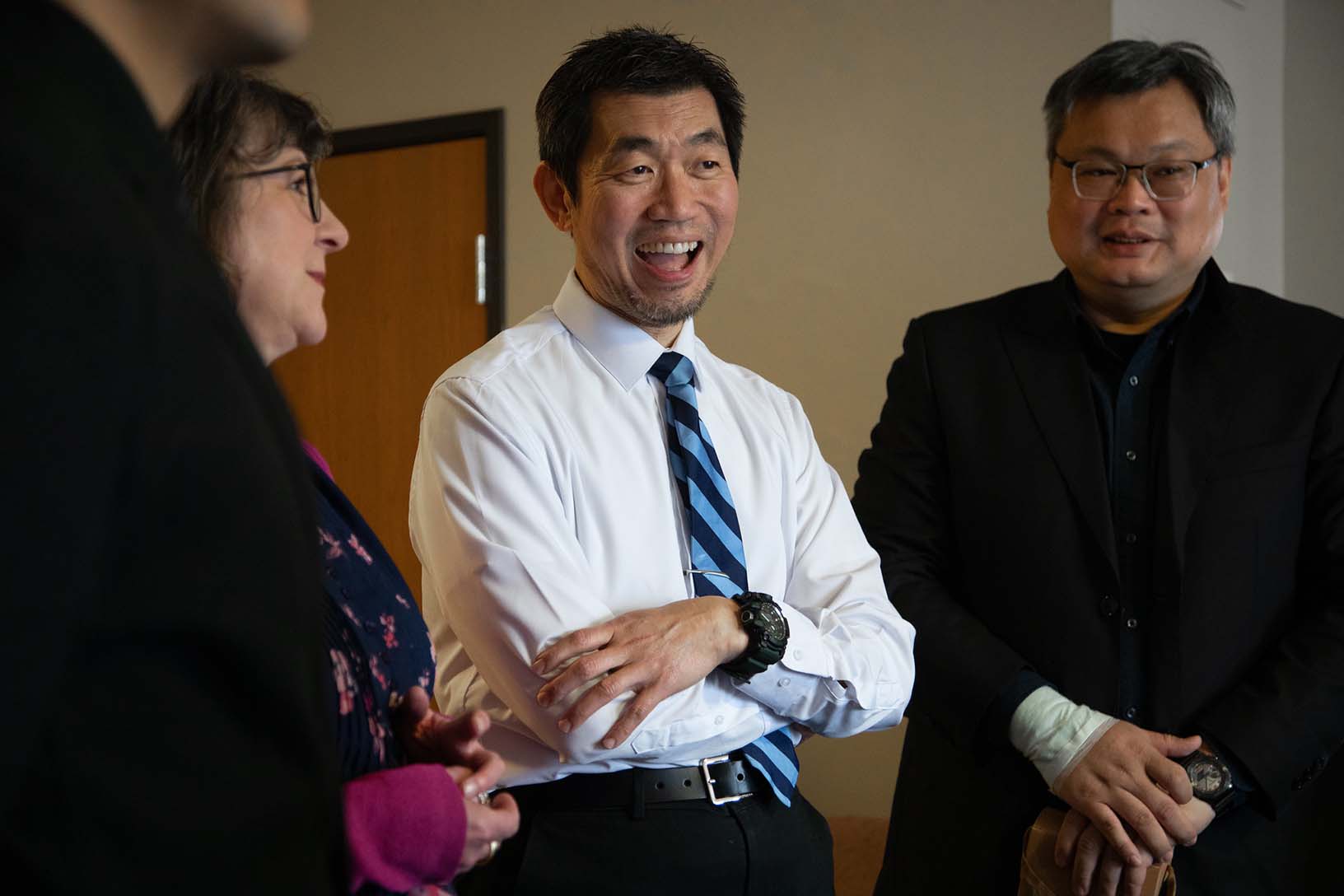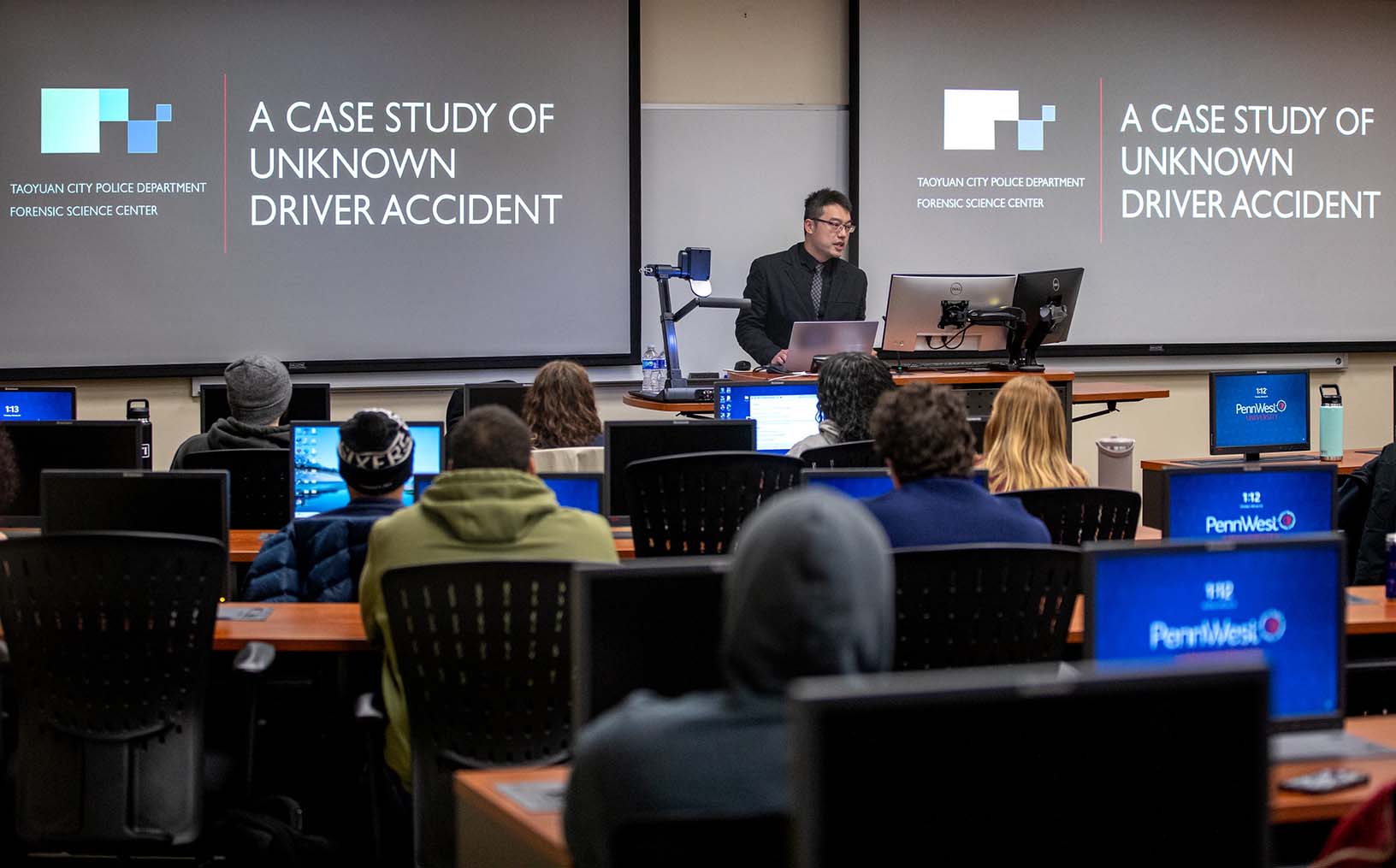Kuan-Wei Ho, a crime scene investigator with Taoyuan City Police Department, speaks with PennWest California's criminal justice class.
A high-profile delegation from Taoyuan Metropolitan City, Taiwan, recently visited PennWest University to engage in discussions on artificial intelligence (AI) and its impact on forensic science and criminal justice.
The delegation, which included professionals from Taoyuan’s ISO-certified forensic center, provided an international perspective on forensic investigations, discussing high-profile cases in Taiwan and the challenges of crime scene evidence collection.
Their knowledge-sharing session allowed PennWest students from the criminal justice program to explore cutting-edge forensic technologies and gain a deeper understanding of investigative practices worldwide. Learn more

PennWest faculty members, led by Dr. Raymond Hsieh, shared insights on artificial intelligence applications in forensic investigations, including the detection of deepfake media, digital evidence authentication, and DNA analysis.
In 2024, Hsieh spoke at various institutions in Taiwan, including Central Police University, Ming Chuan University and several major criminal justice agencies. The delegation continues to seek collaboration on forensic technology, particularly in the areas of digital evidence and AI and asked to visit PennWest.
“We discussed how AI is evolving and impacting forensic science,” Hsieh said of the 2025 visit. “While AI can be used to retouch images or generate deepfake content, it also serves as a powerful tool for analyzing crime scene evidence, distinguishing DNA samples in record time, and restoring deleted digital files.”
Beyond academic collaboration, the visit also strengthens PennWest’s global engagement efforts. Faculty members expressed optimism that this exchange could lead to long-term partnerships and attract more international students to the university’s programs.
Dr. Mary Paniccia Carden, dean of the College of Education, Arts and Humanities, Dr. Yugo Ikach, associate dean of the college, and Dr. Julie Warnick, chair of the Department of Criminal Justice, History and Politics, welcomed the delegation, emphasizing the importance of intellectual exchange in the rapidly evolving field of digital forensics.
"This visit exemplifies the power of global collaboration in higher education," Carden said. "By engaging with international experts, our students gain invaluable insights into the real-world applications of AI in forensic science, preparing them to navigate an increasingly complex digital landscape."
